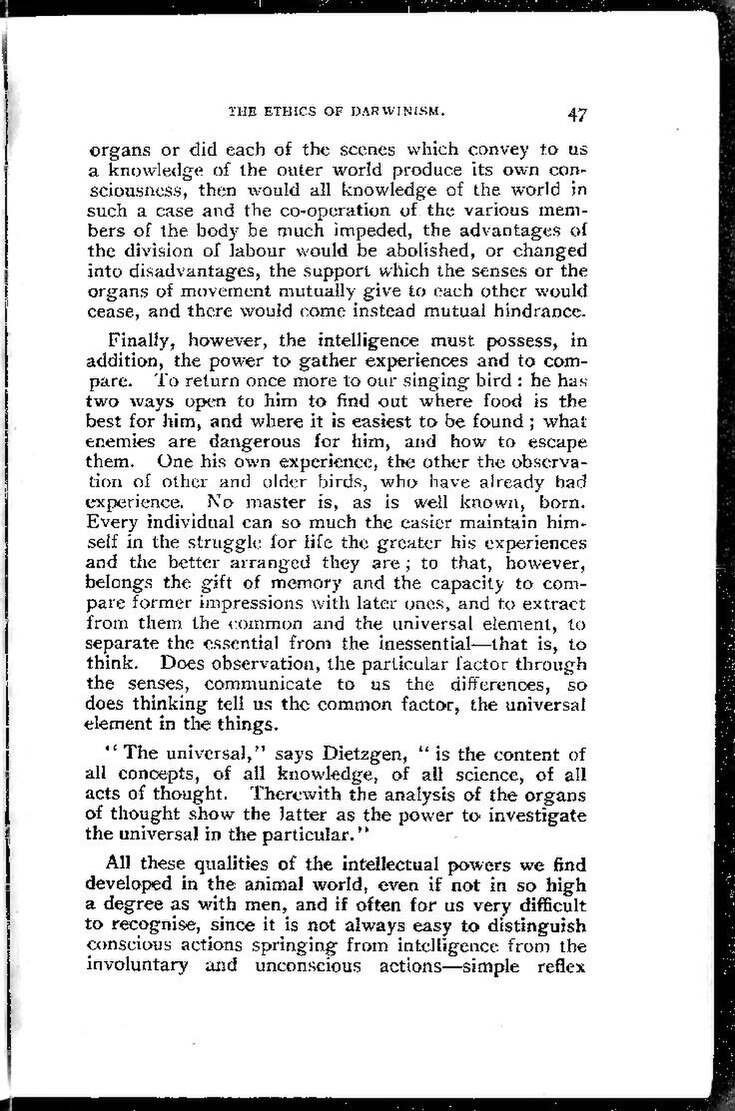organs or did each of the scenes which convey to us a knowledge of the outer world produce its own consciousness, then would all knowledge of the world in such a case and the co-operation of the various members of the body be much impeded, the advantages of the division of labour would be abolished, or changed into disadvantages, the support which the senses or the organs of movement mutually give to each other would cease, and there would come instead mutual hindrance.
Finally, however, the intelligence must possess, in addition, the power to gather experiences and to compare. To return once more to our singing bird: he has two ways open to him to find out where food is the best for him, and where it is easiest to be found; what enemies are dangerous for him, and how to escape them. One his own experience, the other the observation of other and older birds, who have already had experience. No master is, as is well known, born. Every individual can so much the easier maintain himself in the struggle for life the greater his experiences and the better arranged they are; to that, however, belongs the gift of memory and the capacity to compare former impressions with later ones, and to extract from them the common and the universal element, to separate the essential from the inessential—that is, to think. Does observation, the particular factor through the senses, communicate to us the differences, so does thinking tell us the common factor, the universal element in the things.
"The universal," says Dietzgen, "is the content of all concepts, of all knowledge, of all science, of all acts of thought. Therewith the analysis of the organs of thought show the latter as the power to investigate the universal in the particular."
All these qualities of the intellectual powers we find developed in the animal world, even if not in so high a degree as with men, and if often for us very difficult to recognise, since it is not always easy to distinguish conscious actions springing from intelligence from the involuntary and unconscious actions—simple reflex
